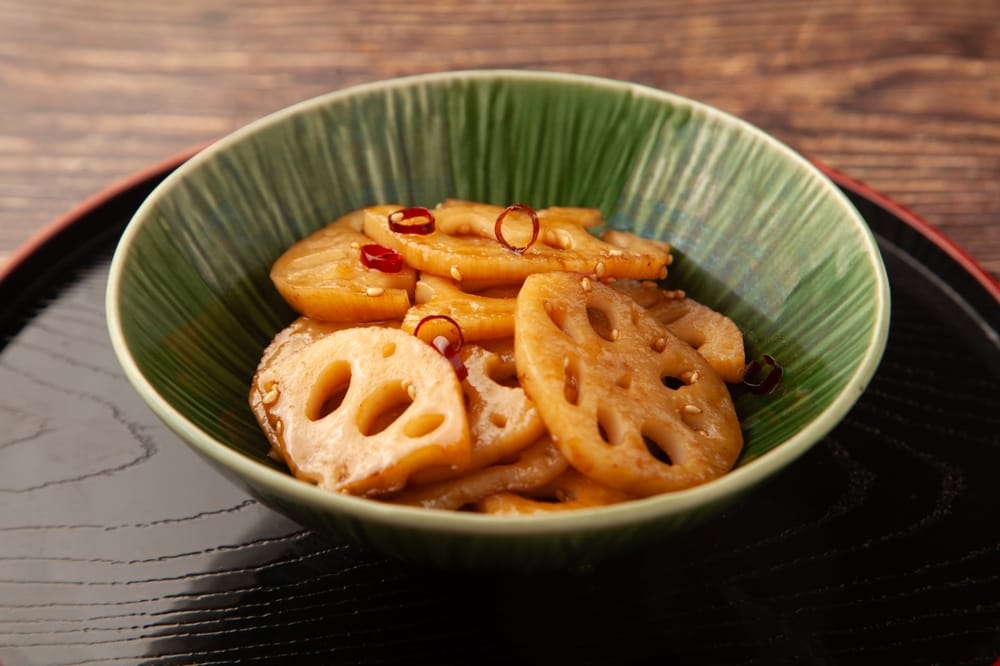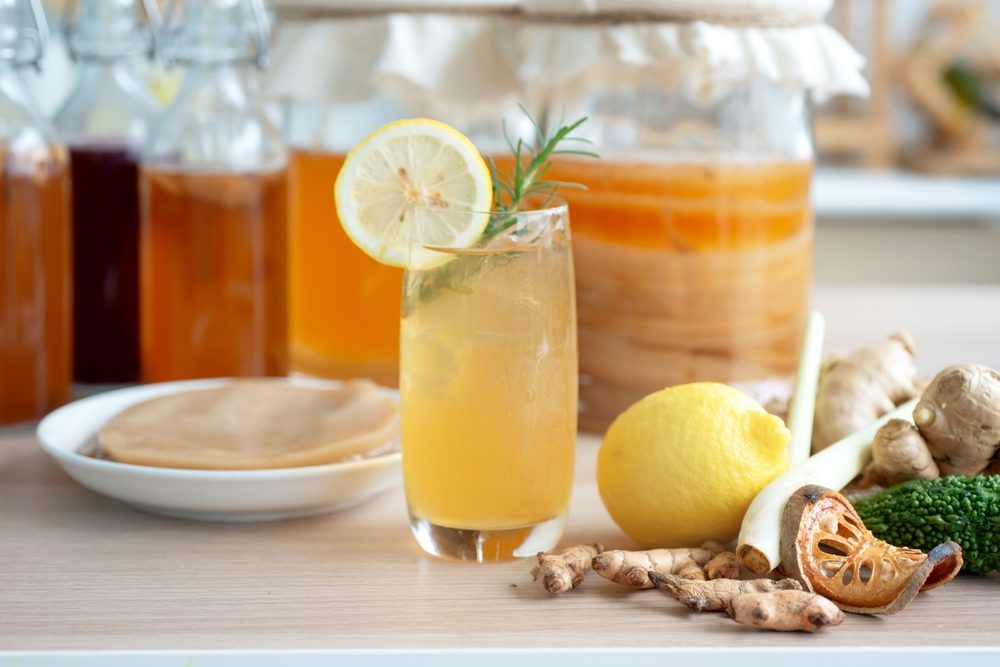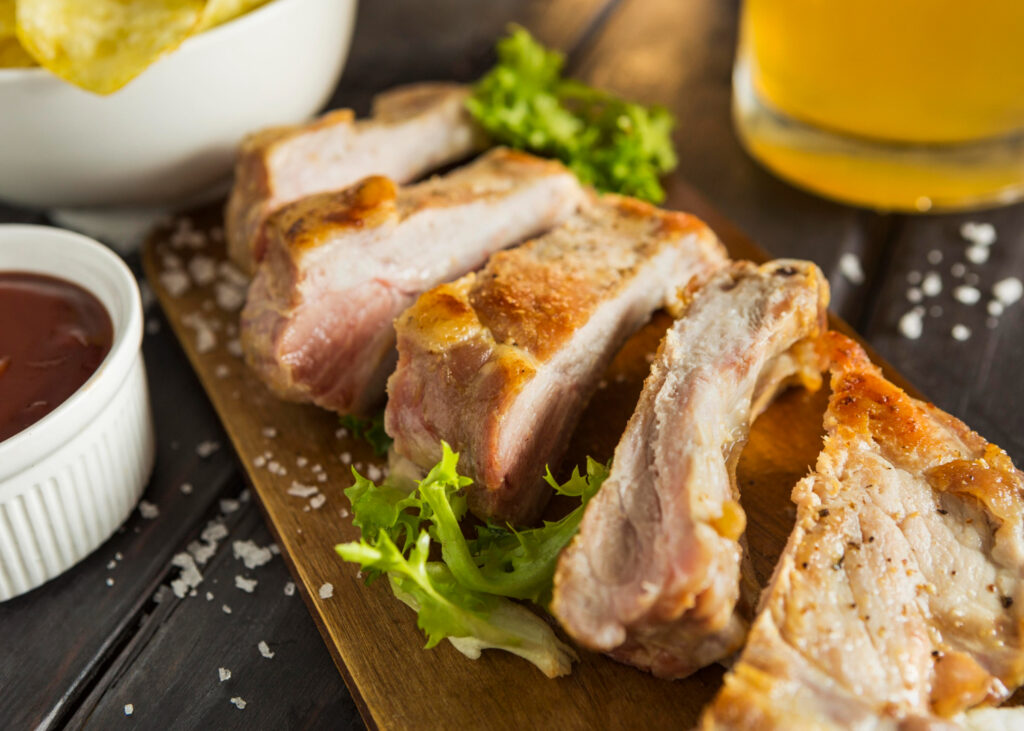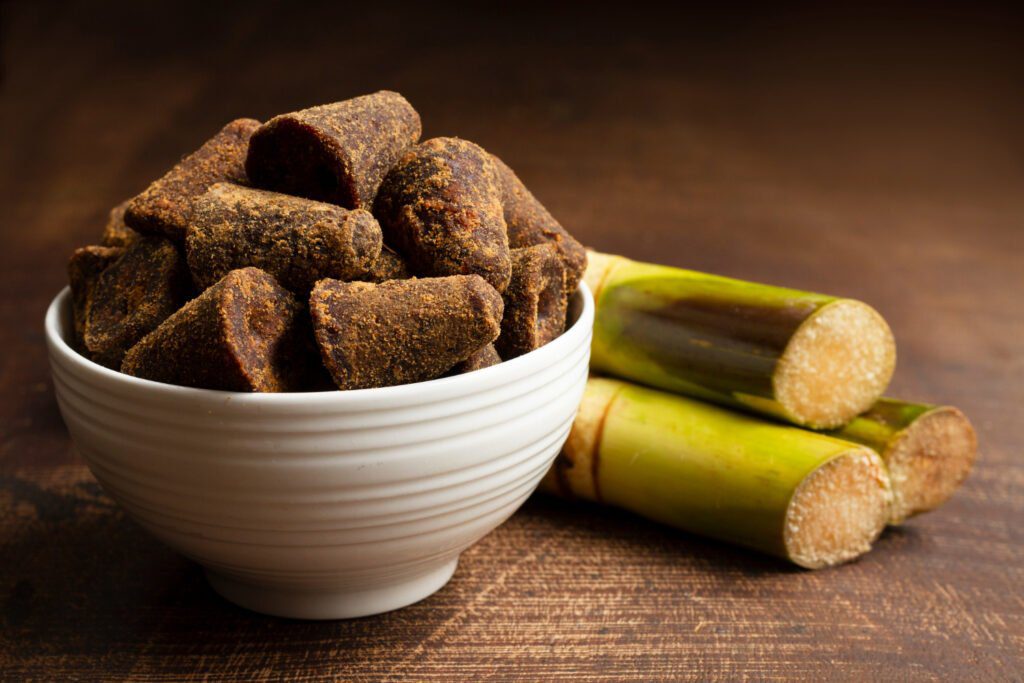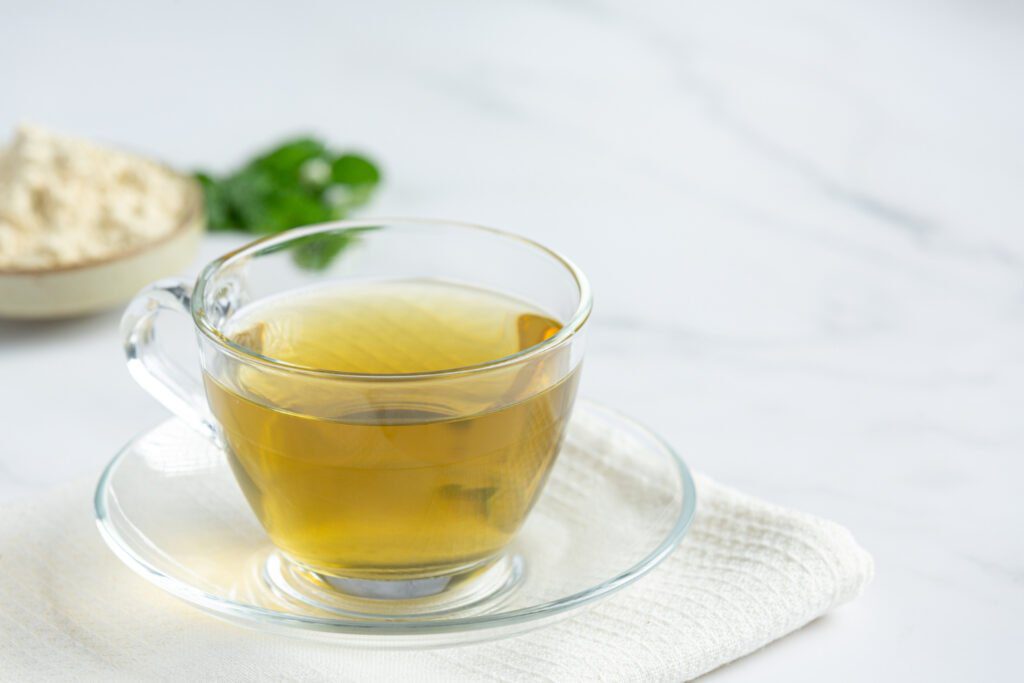In the journey of pregnancy, every expecting mother seeks the best for her and her baby’s health. Among the plethora of food choices, lotus root emerges as a superfood, offering a myriad of benefits. This article delves into the wonders of lotus root during pregnancy, shedding light on its nutritional value, potential health benefits, safety considerations, and expert insights.
Understanding Lotus Root.
Lotus root, revered for centuries in Asian cuisine and traditional medicine, is the underground stem of the lotus plant (Nelumbo nucifera). Renowned for its unique appearance resembling a chain of connected pods, this versatile vegetable boasts a crunchy texture and subtly sweet flavor.
Nutritional Composition.
Lotus root is a nutritional powerhouse, rich in essential vitamins, minerals, and dietary fiber, making it a valuable addition to a pregnant woman’s diet. A 100-gram serving of lotus root typically contains:
- Vitamin C: Vital for immune function and collagen synthesis.
- Vitamin B6: Supports brain development and nervous system function.
- Potassium: Regulates blood pressure and fluid balance.
- Iron: Prevents anemia and supports oxygen transport.
- Dietary Fiber: Aids digestion and prevents constipation, a common pregnancy discomfort.
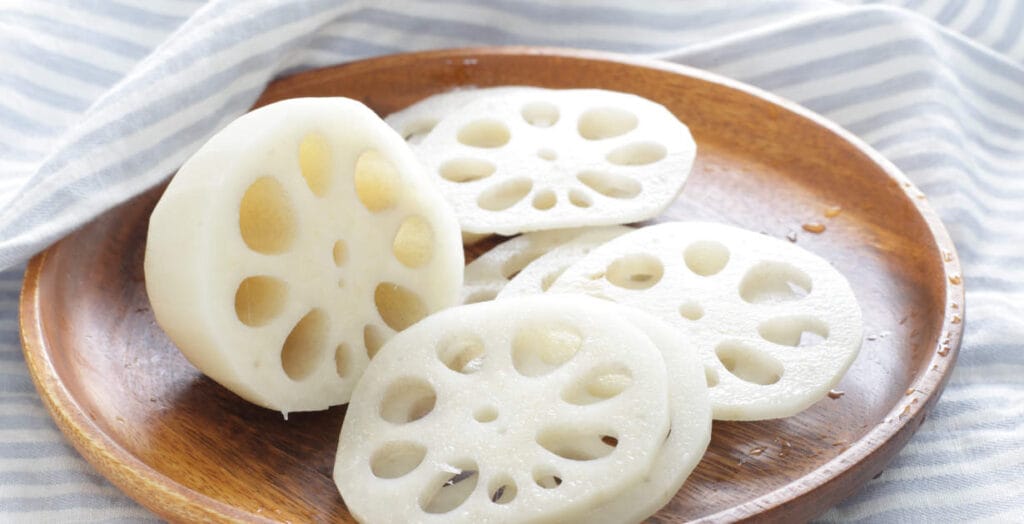
Health Benefits During Pregnancy.
- Enhanced Immunity: The high vitamin C content in lotus root strengthens the immune system, helping pregnant women ward off infections and illnesses.
- Optimal Digestion: The fiber-rich nature of lotus root promotes healthy digestion, alleviating common gastrointestinal issues like constipation and bloating.
- Blood Pressure Regulation: Potassium in lotus root assists in maintaining healthy blood pressure levels, reducing the risk of gestational hypertension.
- Iron Supplementation: Iron deficiency is prevalent during pregnancy, leading to fatigue and anemia. Lotus root provides a plant-based source of iron, supporting maternal and fetal health.
- Fetal Development: The diverse array of nutrients in lotus root, including vitamins and minerals, contributes to optimal fetal growth and development.
Safety Considerations.
While lotus root offers numerous health benefits, pregnant women should consume it in moderation and adhere to safety guidelines:
- Ensure thorough washing and proper cooking to eliminate any potential contaminants.
- Monitor portion sizes to prevent excessive intake, which may lead to gastrointestinal discomfort.
- Consult with a healthcare provider before incorporating lotus root into the diet, especially if there are any preexisting medical conditions or concerns.
Expert Insights.
To gain deeper insights into the benefits of lotus root during pregnancy, we interviewed Dr. Lily Chen, a seasoned obstetrician and gynecologist with over 20 years of experience.
Dr. Chen: “Lotus root is an excellent addition to a pregnant woman’s diet due to its rich nutritional profile. However, moderation is key, as excessive consumption may lead to digestive issues. Always prioritize a balanced diet and consult with your healthcare provider.”
Scientific Evidence.
Numerous studies support the nutritional and health benefits of lotus root consumption, especially during pregnancy:
- A study published in the Journal of Agricultural and Food Chemistry highlighted the antioxidant properties of lotus root, attributing its benefits to various bioactive compounds.
- Research published in the International Journal of Food Sciences and Nutrition underscored lotus root’s potential in preventing iron deficiency anemia, particularly in vulnerable populations like pregnant women.
Frequently Asked Questions..
It’s recommended to cook lotus root thoroughly before consumption to eliminate any potential risks of foodborne illness.
While lotus root is generally safe for consumption during pregnancy, individuals with allergies to similar vegetables or those prone to digestive issues should exercise caution and consult with a healthcare provider.
Incorporating lotus root into meals a few times per week in moderate portions is advisable. However, individual dietary needs may vary, so it’s essential to listen to your body and consult with a healthcare provider.
Bottom Line.
In conclusion, lotus root emerges as a nutrient-dense and beneficial addition to the diet of pregnant women. Its rich nutritional profile, coupled with potential health benefits, makes it a valuable choice for supporting maternal and fetal well-being. By incorporating lotus root in moderation and adhering to safety guidelines, expecting mothers can harness its wonders on their journey to a healthy pregnancy.
How we reviewed this article:
Our team of experts is always monitoring the health and wellness field, ensuring that our articles are updated promptly as new information emerges. See Our Editorial Process
May 13, 2025
Written By: Nebadita
Reviewed By: Vandana Sheth
Written By: Nebadita
Reviewed By: Vandana Sheth

 Workout
Workout
 Meditation
Meditation





 Contact Us
Contact Us

